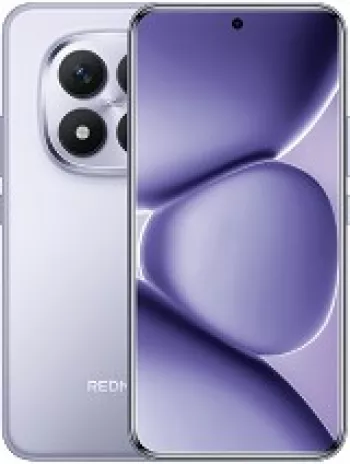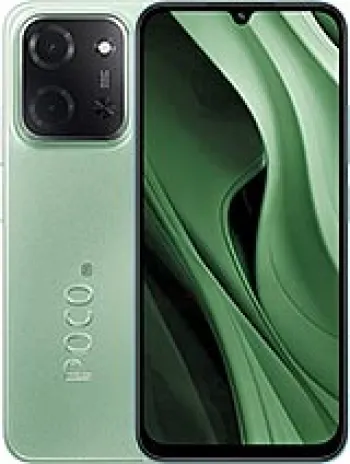
Body and Design
The Xiaomi Redmi Note 7 presents a sleek and modern design that remains appealing to users who appreciate aesthetics and build quality. The device measures 159.2 x 75.2 x 8.1 mm and weighs in at a comfortable 186 g, making it manageable for everyday use. The front and back of the device are protected by Corning Gorilla Glass 5, offering a premium feel and increased durability against scratches and damage. The choice of a glass back sets the Redmi Note 7 apart in its category, providing an elegant look typically reserved for higher-end models. The frame of the phone is constructed with sturdy plastic, allowing for a balance between weight and robustness. Additionally, the hybrid dual SIM capability is an added convenience for those who require two numbers on a single device.
Display
The Redmi Note 7 boasts a 6.3-inch IPS LCD display which provides vibrant colors and good viewing angles, ensuring a pleasant viewing experience for multimedia consumption. The resolution of 1080 x 2340 pixels results in a crisp and clear display, with a pixel density of approximately 409 ppi. This combination promises a high-quality visual experience whether browsing the web, watching videos, or playing games. The display also benefits from the protection of Corning Gorilla Glass 5, further enhancing its durability. The overall screen-to-body ratio of approximately 81.4% provides an immersive viewing area that minimizes distractions from bezels.
Performance
Powering the Redmi Note 7 is the Qualcomm SDM660 Snapdragon 660 chipset, a reliable mid-range option built on the 14 nm process. This octa-core processor comprises four Kryo 260 Gold cores clocked at 2.2 GHz and four Kryo 260 Silver cores at 1.8 GHz, which together provide a balance of power efficiency and performance for everyday tasks. The Adreno 512 GPU handles graphics processing, delivering adequate gaming performance for casual games and some more demanding titles at medium settings.
The device comes with various memory configurations, including 3GB, 4GB, or 6GB RAM options coupled with internal storage ranging from 32GB to 128GB. Additionally, storage can be expanded via a microSDXC card, albeit at the expense of one of the SIM slots. In benchmark tests, the Redmi Note 7 performs competitively within its price range, with scores such as 139075 on AnTuTu (v7) and 5411 on GeekBench (v4.4), positioning it as a capable device for its time.
Camera
Photography enthusiasts will appreciate the dual-camera system on the Redmi Note 7. The primary shooter is a 48 MP camera with an aperture of f/1.8, which excels in good lighting conditions, capturing sharp and detailed images. The secondary camera is a 5 MP depth sensor, which aids in creating bokeh effects for portrait shots. In some regional versions, the primary camera may be 12 MP with a similar supporting depth sensor. Features like Dual-LED flash, HDR, and panorama enhance the photography experience, while video recording capabilities include 1080p at 30, 60, or 120 fps with gyro-EIS for stability.
The front camera is a 13 MP sensor with an f/2.0 aperture, capable of capturing decent selfies. It also supports HDR for better color accuracy and contrast in varying lighting conditions. The selfie camera's video capabilities include recording at 1080p at 30 fps.
Battery Life
The Redmi Note 7 is equipped with a non-removable Li-Po 4000 mAh battery, offering substantial endurance for daily tasks. This sizable battery allows for extended use throughout the day, supported by an endurance rating of 108 hours. The device supports 18W wired charging with Quick Charge 4 technology, facilitating faster top-ups and reducing downtime. Users can expect reliable battery performance capable of handling browsing, gaming, and multimedia playback throughout the day without frequent recharges.
Software and Features
Originally shipping with Android 9.0 (Pie) and MIUI 10, the Redmi Note 7 has seen updates to Android 10 with MIUI 12, which enhances both functionality and design. MIUI is known for its rich features and customization options, allowing users to tailor their experience to suit personal preferences. Key features include a robust notification management system, app locks, dual apps, and a wide range of themes.
Connectivity and Extras
The Redmi Note 7 offers a comprehensive suite of connectivity options, including Wi-Fi 802.11 a/b/g/n/ac, dual-band Wi-Fi Direct, and Bluetooth 5.0 with A2DP and LE. While NFC support is absent, the device makes up for it with an infrared port, FM radio with recording capabilities, and a reliable GPS system supporting GLONASS and BDS.
The device includes a USB Type-C 2.0 port, moving away from the outdated microUSB standard, enabling reverse connector orientation for user convenience. Additionally, the presence of a 3.5mm headphone jack caters to traditional audio accessories. The rear-mounted fingerprint sensor offers quick and reliable unlocking, complemented by standard sensors like accelerometer, gyro, proximity, and compass.
Conclusion
The Xiaomi Redmi Note 7 stands out as a robust and reliable choice in the competitive mid-range smartphone market. Its impressive design, combined with a solid build and premium materials, appeals to users looking for value without compromising on style. The phone's performance, supported by the Snapdragon 660 processor and ample memory configurations, ensures smooth operation across a range of applications.
With a strong focus on photography, the dual-camera setup and selfie camera cater to photography enthusiasts. Battery life is another highlight, providing ample power for prolonged use without frequent recharges. While some users may miss NFC support, the device compensates with other practical features like infrared support and FM radio. Overall, the Redmi Note 7 remains a competitive option for those seeking a balanced and affordable smartphone experience.
Key Features of Xiaomi Redmi Note 7
- Strong Build: Glass front and back with Gorilla Glass 5 protection
- Vibrant Display: 6.3-inch IPS LCD with 1080 x 2340 pixels resolution
- Durable Battery: 4000 mAh, supports 18W fast charging with QC4
- Powerful Camera: Dual main camera with a 48 MP primary sensor
- Expandable Storage: Supports microSDXC card in shared SIM slot
- Efficient Processing: Qualcomm Snapdragon 660 chipset with up to 6 GB RAM
- Fingerprint Sensor: Rear-mounted for secure and easy access
- USB Type-C Port: Modern connectivity with reversible connector
- Infrared Port: Allows control of devices such as TVs and air conditioners
- Multiple Color Options: Available in Blue, Black, Twilight Gold, and White
Disadvantages of Xiaomi Redmi Note 7
- No NFC support.
- Hybrid SIM slot may not be ideal for users needing dual SIM functionality alongside expandable storage.
- The phone lacks wireless charging.
- The plastic frame might not feel as premium as metal.
- MIUI might come with bloatware that some users may not prefer.
- The rear-mounted fingerprint sensor might not be as convenient for all users.




















View Also
More Phones
All Rights Reserved +14300 Phones © Mobilawy 2025

























